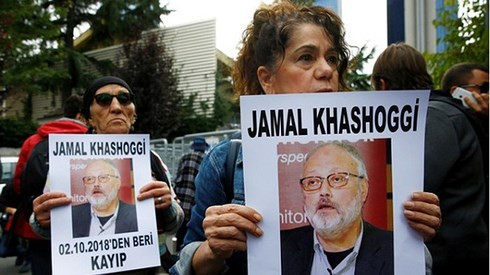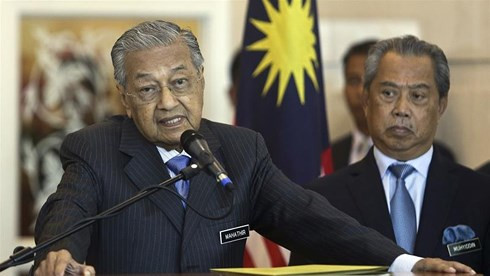Malaysia to abolish death penalty; Austria to extend border controls
(Baonghean.vn) - The world over the past 24 hours has been filled with many events such as: Moscow revealed the time when Presidents Putin and Trump could meet; Malaysia will abolish the death penalty; Austria extended border control for another 6 months; Britain re-established the "special task force" that appeared in World War II...
Moscow reveals when Presidents Putin and Trump could meet
 |
| Russian President Vladimir Putin (left) and his US counterpart Donald Trump. Source: AFP/Getty Images |
According to Reuters, RIA news agency quoted the Russian Foreign Ministry on October 12 as saying that President Vladimir Putin and his US counterpart Donald Trump are likely to meet in the French capital Paris on November 11. The source said the meeting could take place if both leaders attend the same event to commemorate the end of World War I.
The ministry said Russia is open to dialogue and is ready to consider the time and location for a possible meeting between President Putin and his counterpart Trump if Washington is also interested.
US and Saudi Arabia divided over missing journalist Khashoggi
|
Journalist Khashoggi is missing. |
US President Donald Trump said US investigators are working with Turkish and Saudi authorities to clarify the case of journalist Jamal Khashoggi, a Saudi national who was seeking to become a US citizen and went missing in Turkey. US President Donald Trump has increased pressure on Saudi Arabia, a close ally in the Gulf, to provide more information about the missing journalist and wants to know the bottom of this "very serious situation". The case is causing tension between the US and its ally Saudi Arabia.
Khashoggi has been missing since October 2 after entering the Saudi Arabian consulate to complete paperwork for his marriage to a Turkish woman. Khashoggi is known as a famous journalist and political commentator who often criticizes the policies of Saudi Crown Prince Mohammed bin Salman. He is also in the process of seeking to become a US citizen after being exiled since 2017.
Malaysia will abolish the death penalty
|
New Malaysian Prime Minister Mohamad Mahathir has vowed to improve human rights in Malaysia. Photo: AP |
The Malaysian cabinet has agreed to abolish the death penalty and halt executions, a move praised by international human rights groups and many diplomats. The bill to abolish the death penalty is likely to be discussed by the government when the Malaysian Parliament meets on October 15.
“All death sentences will be abolished. Period,” a Channel NewsAsia article headlined, citing Law Minister Liew Vui Keong. Keong also called for a halt to all executions until the decision takes effect. “Since we are preparing to abolish the sentence, all executions will not be carried out,” he explained. There are currently more than 1,200 prisoners on death row in Malaysia, with hanging being used for a wide range of crimes including murder, kidnapping, drug trafficking, treason, etc.
South Korea and North Korea set date for high-level dialogue
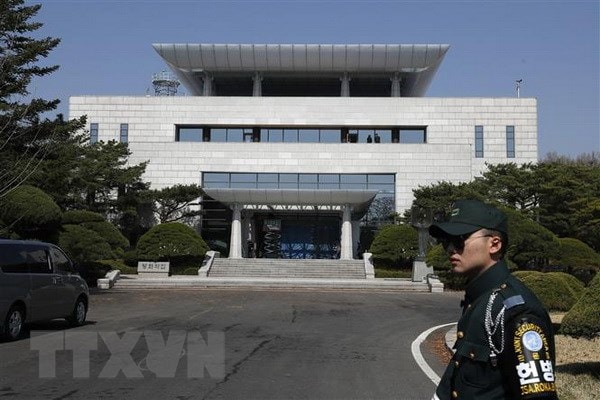 |
| The Peace House in the truce village of Panmunjom. Source: EPA-EFE/TTXVN |
Yonhap news agency reported on October 12 that South Korea and North Korea will hold high-level talks on October 15 to discuss ways to implement the agreement reached by the two countries' leaders at the most recent inter-Korean summit. A source from the South Korean Unification Ministry said the two sides agreed to use the Peace House, which is controlled by Seoul in the truce village of Panmunjom, as the venue for the event.
The announcement from the South Korean Unification Ministry said that the two sides will have comprehensive consultations on how to implement the Pyongyang Declaration at the Inter-Korean Summit last September, and will also decide on the schedule for the upcoming dialogue on each specific issue. In addition, the two countries are expected to discuss a number of other contents such as: plans to establish a joint military committee; carry out a joint field survey on the railway and road modernization project in North Korea; set the time and location for online Red Cross meetings and exchange information between separated families.
Austria extends border controls for another 6 months
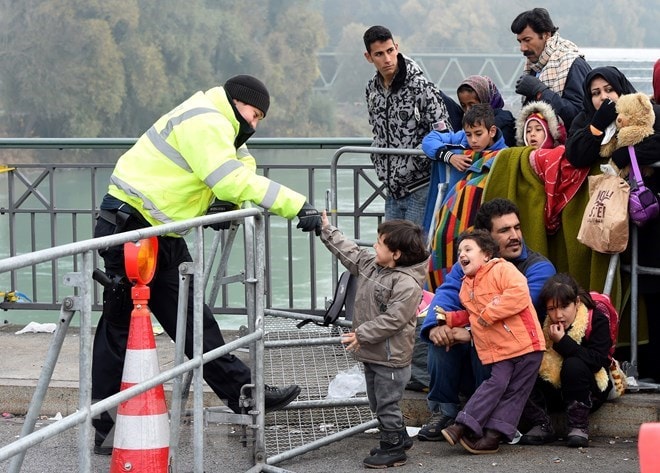 |
| Migrants at the Austrian border area. Source: AFP/TTXVN |
On October 11, the Austrian government announced that it would extend controls on its shared border with Hungary and Slovenia for another six months. Austrian Interior Minister Herbert Kichl said the government made the decision because a large number of illegal immigrants were still coming and staying in Austria, causing instability. Although he did not provide exact figures on the number of immigrants, Minister Herbert Kichl affirmed that Austria did not want to repeat the situation in 2015 when a large number of migrants flocked to Europe.
The Schengen area, which includes 22 European Union (EU) countries plus Iceland, Liechtenstein, Norway and Switzerland, collapsed after about 1.5 million refugees and migrants arrived in the EU in 2015 and 2016. Austria, Germany, Denmark, Sweden and Norway were the first countries to impose border controls in 2015, when a wave of refugees and migrants flooded into Europe.
Singapore tightens monetary policy, warns of trade war
 |
| ATM in Singapore. Source: Bloomberg |
The Monetary Authority of Singapore (MAS - Central Bank) on October 12 decided to further tighten monetary policy with the forecast that the country's economy will maintain stable growth and inflation will be maintained at a low level, but warned of risks from trade wars that may occur next year.
MAS has increased the trading band for the Singapore dollar, but left the band's core unchanged. This is the second time in six years that MAS has decided to tighten monetary policy.
Britain re-establishes "special forces" that appeared in World War II
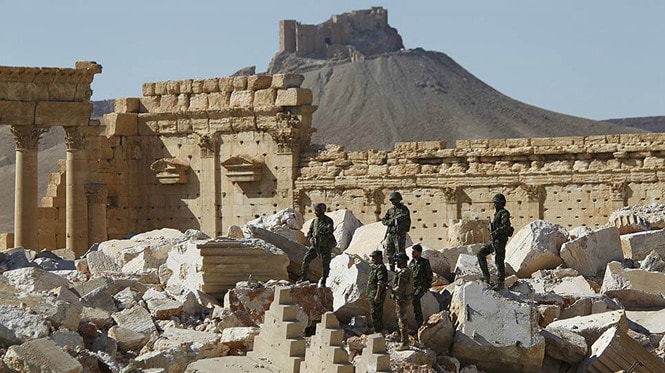 |
| Syrian soldiers on the ruins of the ancient city of Palmyra. Photo: Reuters |
The British Army has established a Cultural Property Protection Unit (CPPU) and is recruiting soldiers to join. The unit was established after the self-proclaimed Islamic State (IS) organization in the past few years has destroyed many ancient relics and heritages in the Middle East, especially in the ancient city of Palmyra in Syria.
The CPPU, based in Berkshire, southeast England, is currently led by Lieutenant Colonel Tim Purbrick, who served in the 1991 Gulf War, but has no other members. Mr. Purbrick said he is looking to recruit about 15 experts in the fields of art, archaeology, and art crime investigation from all branches of the British military. Once fully staffed, the CPPU will be deployed to war zones where there are archaeological sites and relics at risk of war damage. In addition to protecting works of art and relics, the CPPU also participates in investigating thefts, smuggling, and informing allies of the locations of heritage sites so they do not bomb them by mistake.
Japan relaxes recruitment of highly skilled workers for long-term residency
 |
| Assembling cars in Hiroshima city, Japan. Photo: EPA/TTXVN |
On October 12, the Japanese government announced a program to relax regulations on recruiting immigrant workers and allow skilled foreign workers to stay in the country long-term. This new regulation is expected to take effect from April 1, 2019, but the government needs to complete and submit to the National Assembly for approval amendments related to labor laws.
Until now, Japan has restricted the entry of foreign workers, allowing only professionals in certain fields, such as scientists and lecturers, musicians, and sports coaches. The Japanese government plans to introduce a new system to recruit immigrant workers in more than 10 industries that are increasingly facing labor shortages in the country, such as construction, agriculture, and nursing and elderly care.

